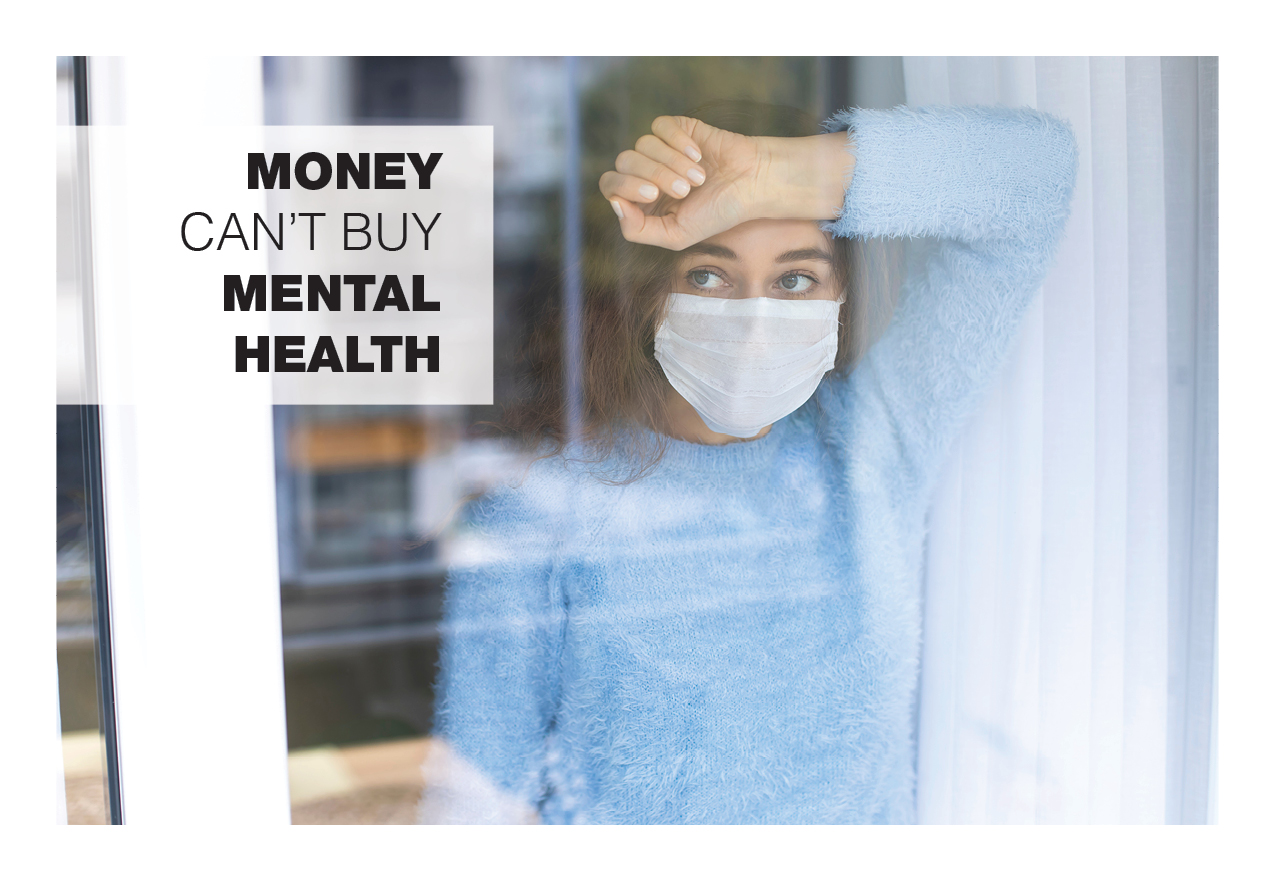Olympic gymnast Simone Biles and tennis star Naomi Osaka took an unusual step this summer, placing their emotional health above the intense competitive pressure to succeed in their sports. Like singer Brittany Spears, they told the world about their personal health issues.
Of course, athletes and entertainers are far from the only individuals wrestling with anxiety or depression. Many a corporate CEO, physician, attorney, entrepreneur, or student has also struggled with mental health issues – usually in secret. All too often those personal problems may be compounded by alcohol or substance abuse.
Wealthy families are familiar with the saying, “Money can’t buy happiness.” They have seen friends and family members lead troubled lives, despite the size of their investment accounts. In any case, it’s clear that money can’t buy mental health, despite the best wishes of the family patriarch or matriarch.
Pandemic intensifies issues
For many affluent families, the COVID-19 pandemic has intensified those personal mental health issues. The fear of infection resulted in an overall increase in anxiety for many people. Depression is also on the rise, in part because the steps taken to prevent the spread of the virus have led to social isolation.
Think about the mental state of an older person, who couldn’t see children or grandchildren in person, or go out to dinner with their close friends. For month after month, there was very limited social contact, mostly conducted online or over the phone.
Many people have been suppressing their depression having faced death, either by being sick with COVID, due to the side effects of the disease or worse still, losing loved ones and unable to say goodbye.
Now that life is moving toward a new normal, those feelings of isolation, depression and anxiety are not going to suddenly disappear. Every twist and turn in the COVID-19 news story can bring them back to life again.
Because many seniors have not yet recovered their emotional stability, they can be vulnerable to con artists posing as new friends. They might suggest assisting them with their financial affairs or advise them to switch financial advisors to a colleague in on their scheme. Crime studies indicate that scams against elderly people have climbed substantially during the pandemic and show no signs of abating.
Seniors may also need to be protected from family members, suffering financial impact from the pandemic, with ulterior motives. A distant nephew or niece who suddenly calls every day or visits every weekend, might be motivated by something other than genuine concern for a wealthy aunt or uncle.
I am grateful to the likes of Naomi Osaka, Emma Raducanu, Coco Gauff and Simone Biles, they are breaking the taboos and opening a conversation on stress, pressure in the workplace and mental health. For too long these issues have been buried for different reasons, some embarrassment, others cultural. Regardless, we need to face this challenge head on and acknowledge their pain before it’s too late.
If there is a concern about a person’s emotional status, a change in the family dynamics or the risk of financial fraud, those around them should speak up and if necessary, ask an experienced outside professional to investigate the problem. Don’t ignore mental health issues just because they lead to uncomfortable conversations.
Unfortunately, I have dealt with too many people that have either lost family members or taken their own lives, because of this taboo. If after a careful assessment you determine there is a mental health issue, we are there to assist and prevent a potential loss, that could impact the entire family.

Leave A Comment